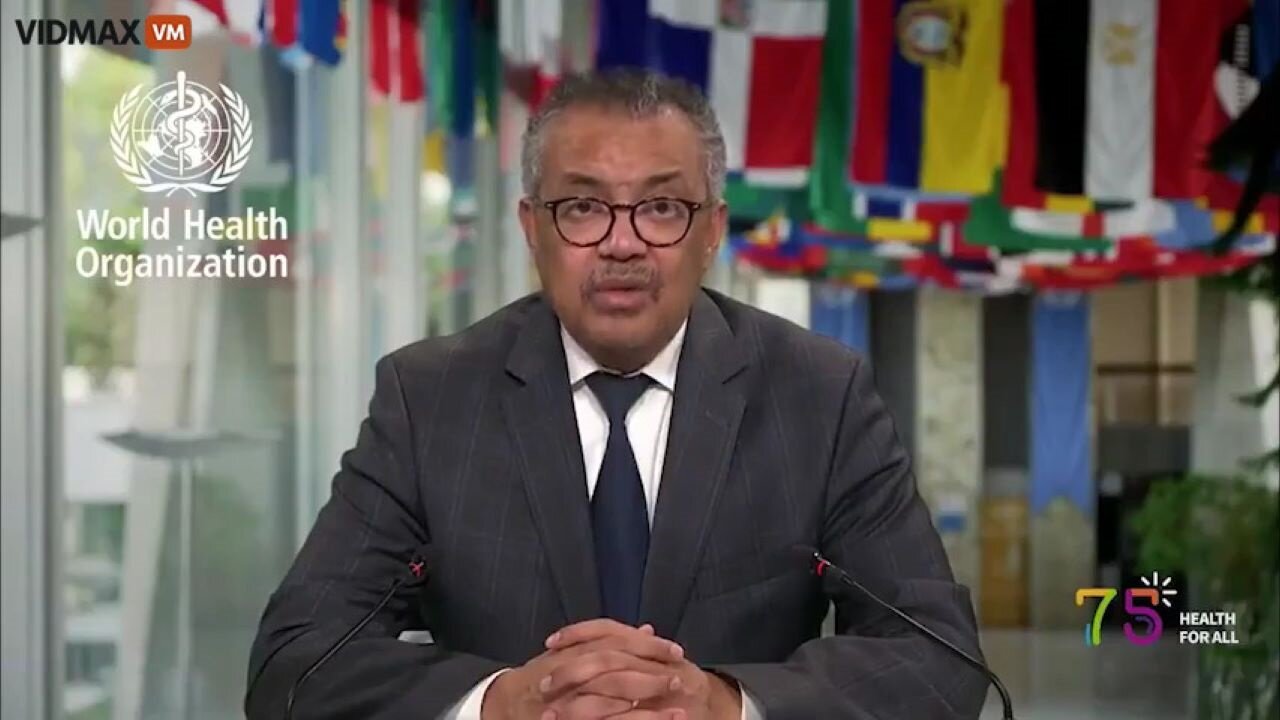Premium Only Content

The Head Monster Of The WHO, Tedros, Says Food Is A Threat To Our Planet
WHO head, Tedros Adhanom Ghebreyesus, declares war on meat and traditional agriculture, in the name of fighting "climate change": "Our food systems are harming the health of people and the planet. Food systems contribute to over 30% of greenhouse gas emissions, and account for almost one third of the global burden of disease." - "Transforming food systems is therefore essential, by shifting towards healthier, diversified and more plant-based diets." Does anyone remember electing this clown to dictate what kind of agriculture and diets are permissable? Nope, me neither.
The problem starts when vegan people give up animal products not (only) because of the health benefits, but also to protect the environment - and this is true for the majority of vegan people. Because contrary to what is often claimed, a plant-based diet is not always the better one. Because climate-friendly does not necessarily mean environmentally friendly. People who eat a vegetarian or vegan diet can harm the environment more than people who eat meat, a report of the World Wide Fund for Nature (WWF) found. "There's nothing sustainable about this plant-based model," said Amy Trauger, author of the study and a professor in the Franklin College of Arts and Sciences. "It is really just a lot of greenwashing. You really don't have to look very far to see how problematic this narrative is."
Most of the soybean products (like tofu and tempeh) in the U.S. aren't grown here, the study found. Up until recently, they were largely imported from India, where soybean production contributes to widespread deforestation and habitat loss. Soybean plantations also take up valuable land space that could be used to ease food insecurity in the country instead. And the pollution and environmental impact from transporting soybeans hundreds of thousands of miles to the U.S. is its own environmental catastrophe. Similarly, palm oil, which is often used as a vegan substitute for butter or lard, is mostly imported from Indonesia, Malaysia, Thailand and Nigeria. Local ecosystems there have been devastated by deforestation and loss of biodiversity as millions of hectares of forests are razed for palm oil production.
On top of its environmental impact, the palm oil industry has been the subject of numerous allegations of human rights violations. Child labor, rampant sexual abuse and rape, and exposure to hazardous pesticides without proper protective equipment aren't uncommon.
-
 2:31
2:31
NewsVids
3 hours ago500,000 Ballots Still To Be Counted In California: 'What Are They Doing?'
38 -
 20:53
20:53
SLS - Street League Skateboarding
2 days agoGold Medals, World Class Food, Night life & more - Get Lost: Tokyo
1.29K -
 47:13
47:13
PMG
16 hours ago"Hannah Faulkner and Doug Billings | WHY LIBERALS LOST THE ELECTION"
252 -
 59:01
59:01
The Liberty Lobbyist
3 hours ago"We Only Have NOW To Make a Difference"
140 -
 DVR
DVR
CatboyKami
4 hours agoStalker 2 Blind playthrough pt1
551 -
 1:06:27
1:06:27
Russell Brand
4 hours agoNeil Oliver on the Rise of Independent Media, Cultural Awakening & Fighting Centralized Power –SF498
144K204 -
 1:39:14
1:39:14
vivafrei
4 hours agoSoros Karma in New York! Tammy Duckwarth Spreads LIES About Tulsi Gabbard! Pennsylvania FLIPS & MORE
63.2K55 -
 1:57:36
1:57:36
The Charlie Kirk Show
4 hours agoInside the Transition + The Bathroom Battle + Ban Pharma Ads? | Rep. Mace, Tucker, Carr | 11.21.24
114K49 -
 59:20
59:20
The Dan Bongino Show
6 hours agoBitter CNN Goes After Me (Ep. 2375) - 11/21/2024
783K3.16K -
 57:28
57:28
TheMonicaCrowleyPodcast
2 hours agoThe Monica Crowley Podcast: Mandate into Action
3.19K